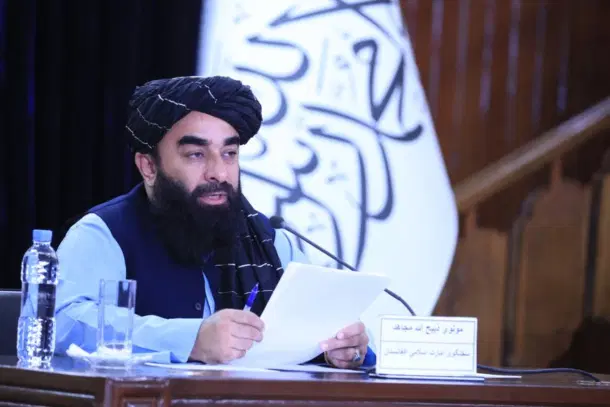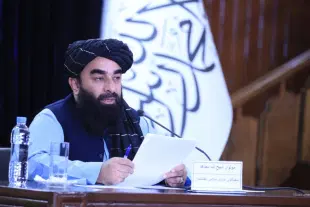News Brief
Istanbul Peace Talks Between Pakistan And Afghan Taliban Collapse After Disagreement Over US Drone Operations: Report
Swarajya Staff
Oct 29, 2025, 09:11 AM | Updated 09:11 AM IST
Save & read from anywhere!
Bookmark stories for easy access on any device or the Swarajya app.


The Istanbul peace talks between Pakistan and the Afghan Taliban reportedly ended in chaos, marking a major setback in regional diplomacy.
Mediators from Qatar and Turkey were left “stunned,” NDTV reported, after discussions broke down over Pakistan’s admission of a secret US drone agreement — a revelation that laid bare deep-rooted mistrust and conflicting security interests.
The Istanbul meeting reportedly began with cautious optimism, with most issues reportedly settled before talks collapsed, NDTV reported, citing multiple diplomatic sources.
Tensions spiked when Pakistan’s delegation, allegedly disorganised and disrespectful, clashed with Afghan representatives and mediators, shattering the fragile optimism.
The talks collapsed after Pakistan admitted — for the first time publicly — that it had granted the US permission to conduct drone operations from its soil.
The Afghan side reacted sharply, demanding assurances that Afghan airspace would not be violated, but Pakistani negotiators refused to alter the arrangement, insisting that this pact "cannot be broken".
Afghan negotiators sought guarantees of non-interference — a request Pakistan seemed ready to accept until an “unknown phone call” from Islamabad changed the tone.
Following the call, Pakistani officials backtracked, claiming no control over US drones or Daesh activities, which led to the abrupt collapse of the session.
Mediators from Qatar and Turkey, who had invested months of effort, were reportedly appalled by Pakistan’s conduct.
Pakistani representatives reportedly started "losing composure and resorting to insults", with one of the source cited in the NDTV report calling it "sabotage by design".
Major General Shahab Aslam, head of Pakistan’s ISI Special Operations Division, demanded that the Afghan Taliban rein in all groups attacking Pakistan, including the TTP.
Kabul’s delegation fired back, stressing that TTP members are Pakistani nationals — not Afghans — and beyond Afghanistan’s jurisdiction.
The Afghan delegation reiterated its pledge to prevent attacks on Pakistan from Afghan soil but held firm that TTP is Pakistan’s internal issue.
Kabul sought reciprocal assurances — that Pakistan would halt US drone missions and respect Afghan airspace — demands that Islamabad rejected.
The confrontation reportedly peaked when Major General Aslam dismissed the drone issue entirely.
When the Qatari ambassador intervened, reminding Pakistan to respect Afghan concerns, Aslam retorted that American drones also fly from Qatar and questioned why Doha did not halt them. The Qatari ambassador replied, “We have an agreement with the US.”
Aslam’s response — “So do we” — confirmed Pakistan’s formal cooperation with Washington's drone operations.
With talks frozen, tensions at the Afghan-Pak border have surged.
Afghan officials warned that any future Pakistani airstrikes will trigger “reciprocal action,” stating that if Afghan territory is bombed, "Islamabad will be targeted."
Afghan delegates maintained they negotiated “in good faith,” accusing Pakistan of exploiting the talks to deflect blame.
Pakistan’s internal divide — between civilian leadership and the military — severely weakened its diplomatic coherence.
Pakistan’s domestic instability, reliance on US drone operations, and past strikes on Pashtun and Afghan civilians have deepened regional distrust, undermining Islamabad’s credibility as a peace partner.





